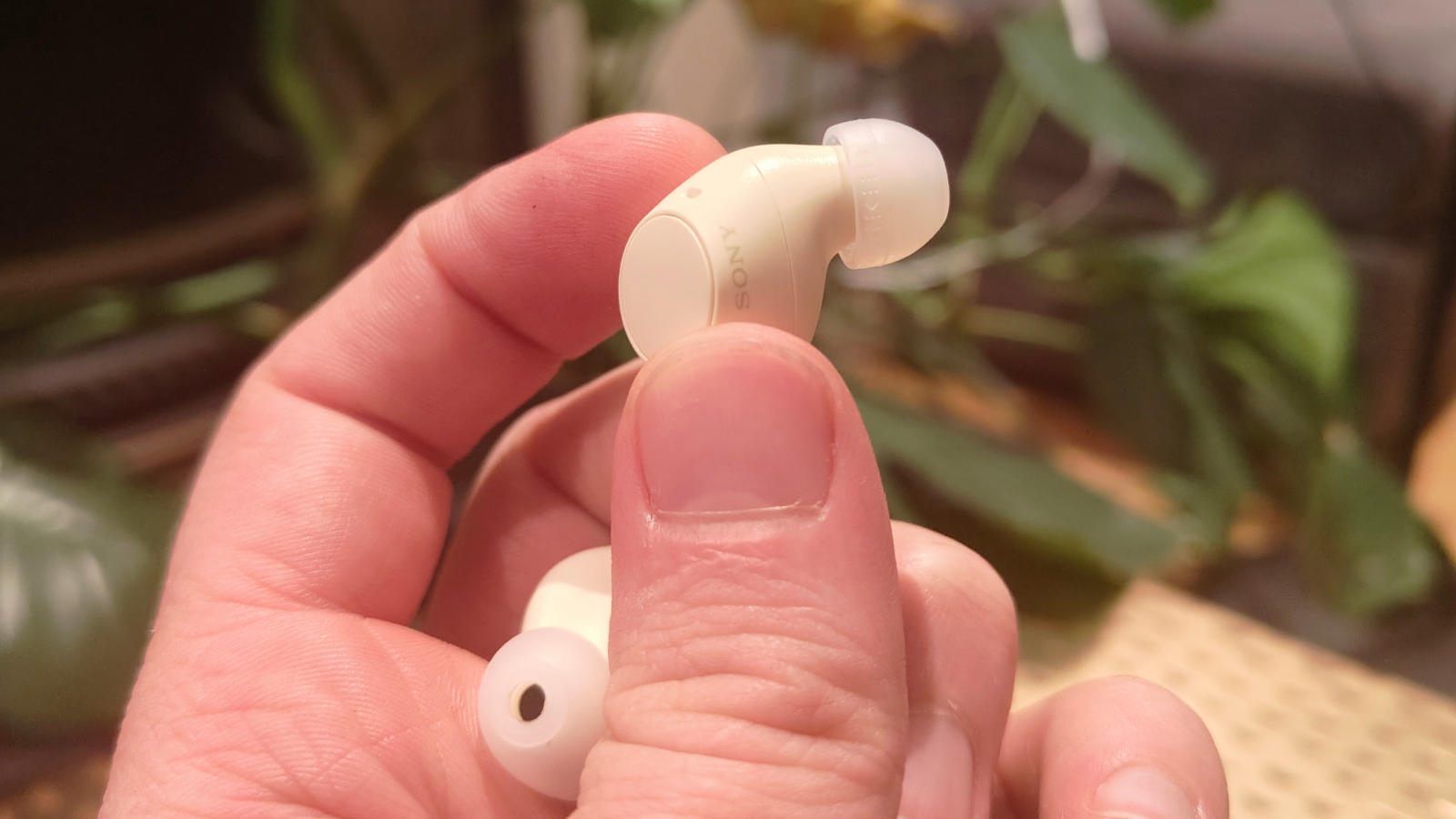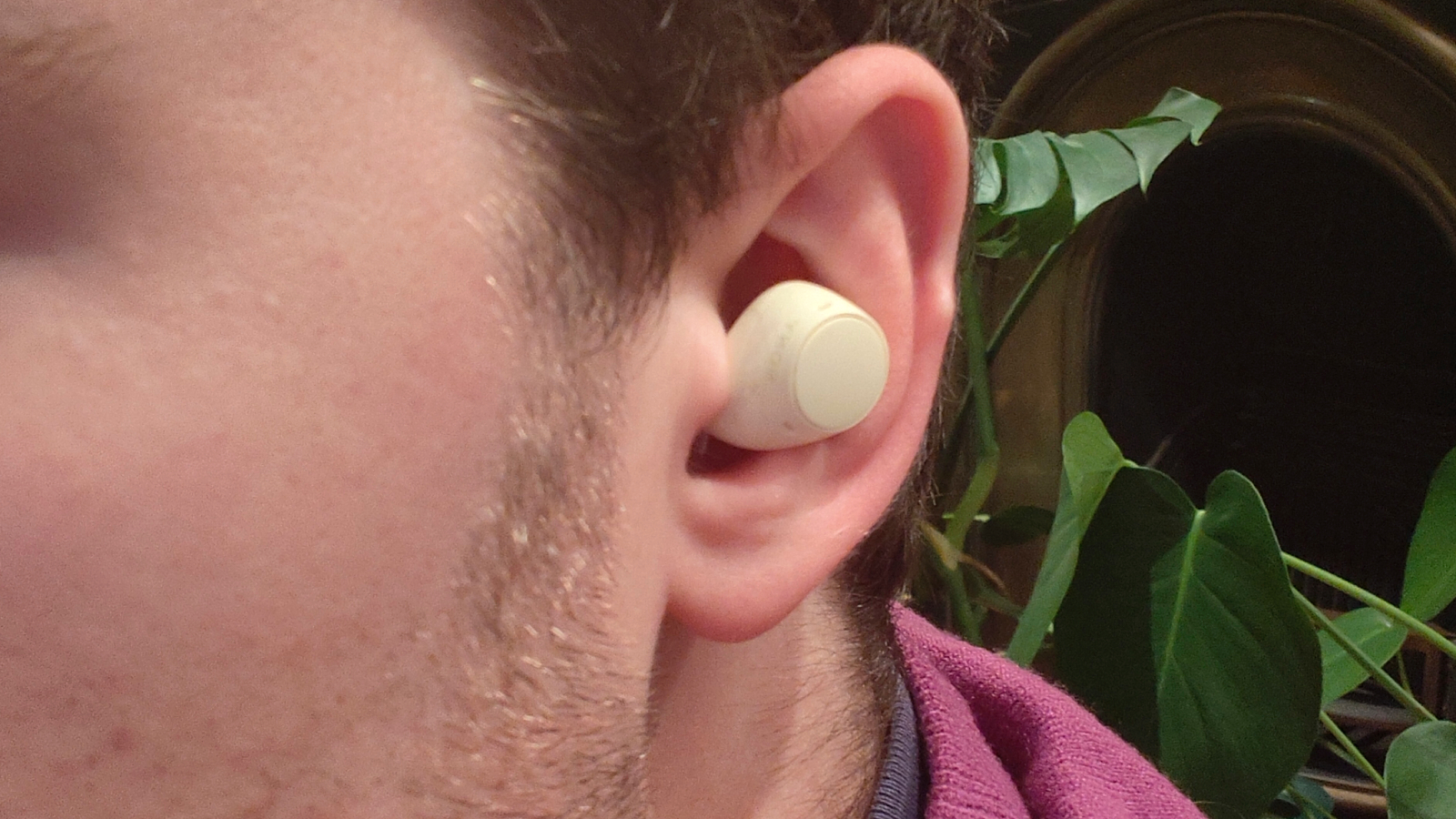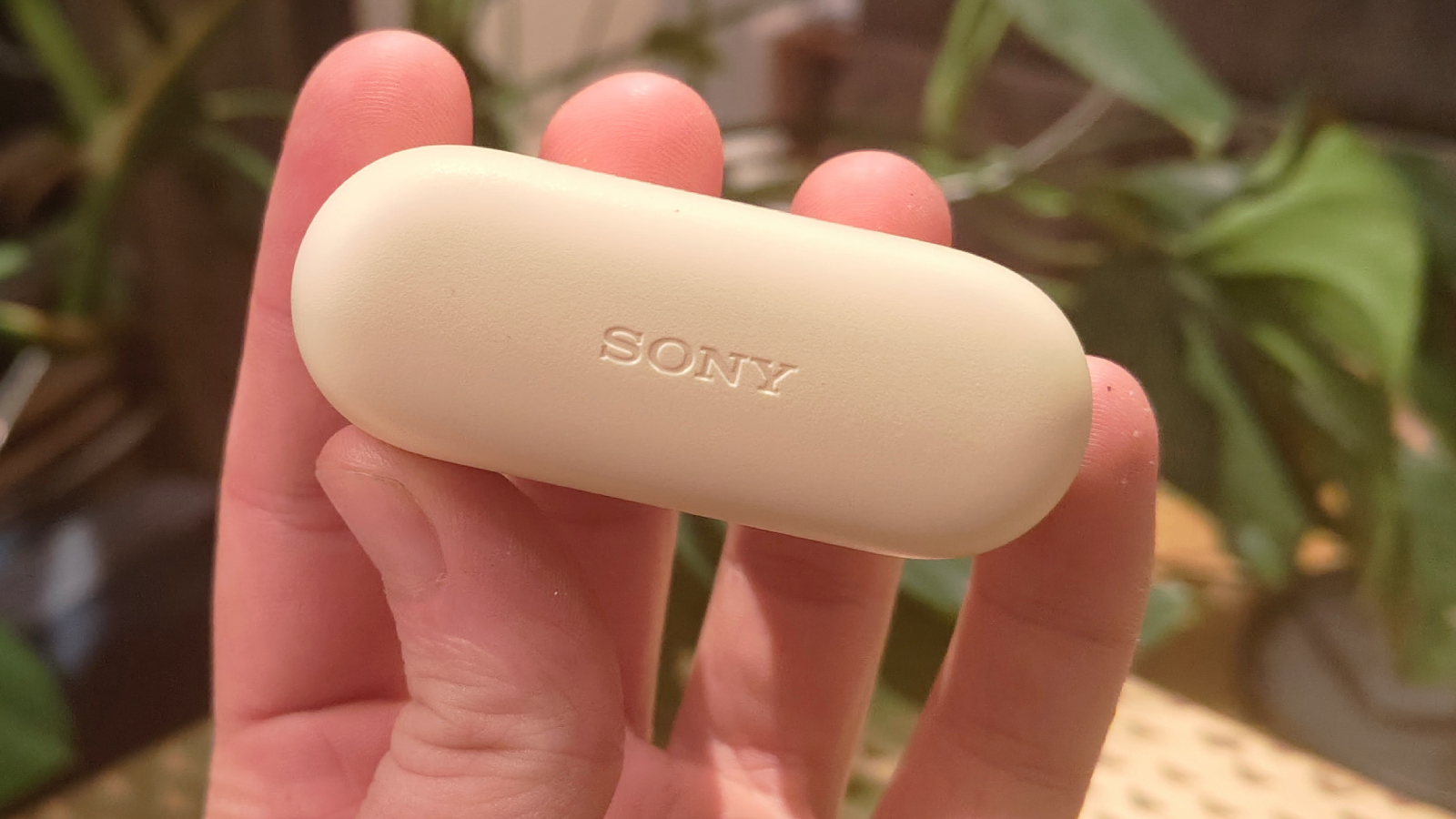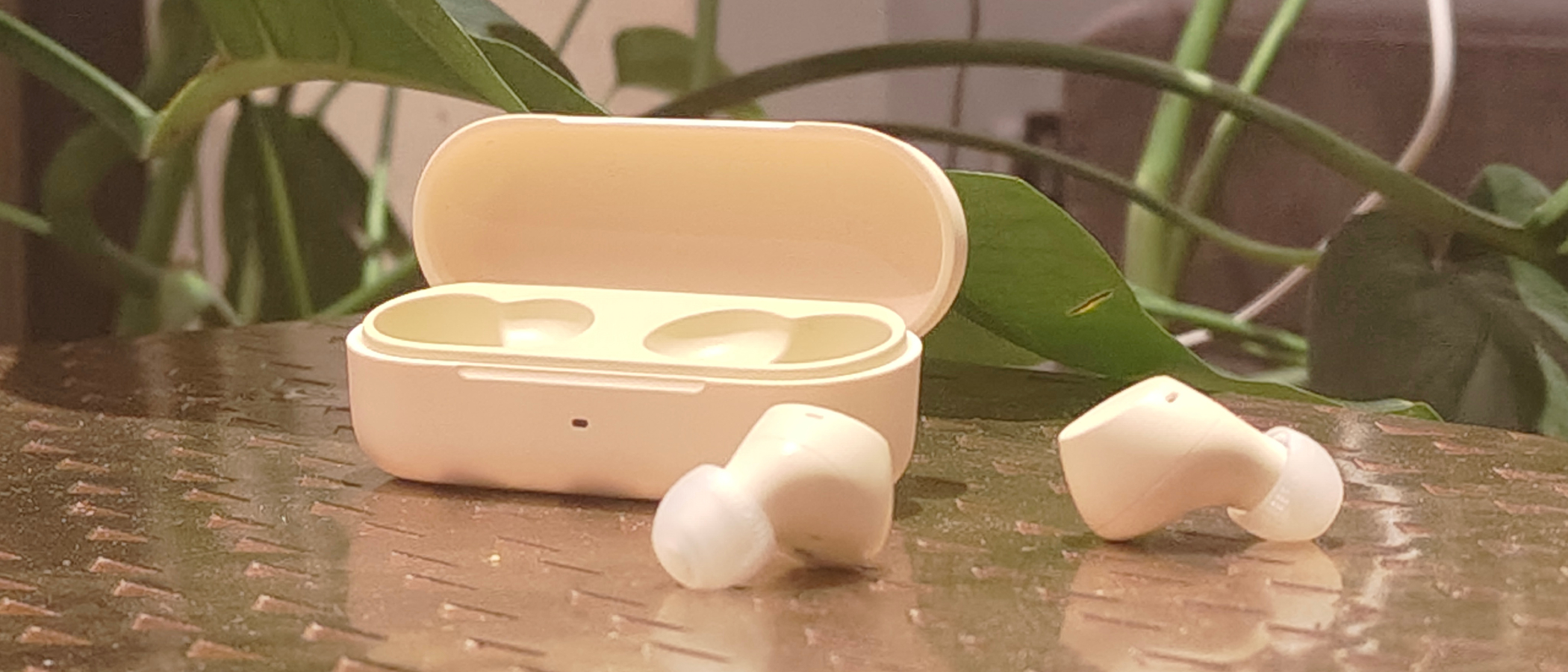TechRadar Verdict
The Sony WF-C510 are some of my favorite low-cost earbuds yet: the audio is punchy and high-quality, the buds are lightweight and feel anchored in your ears, the case is slender and easily-totable, and the price will be a treat to your bank account. A couple of missing-slash-messy features threaten to mar the experience a little, though only the limited stamina in the case comes close – and even then, given the asking fee it's silly to complain. Either way, these are some of the best cheap earbuds out there right now and they continue Sony’s dominance of the audio market.
Pros
- +
Punchy, talented audio
- +
Sony 360 Reality Audio support
- +
Great in-bud battery life; small case
Cons
- -
A few missing features
- -
Confusing custom equalizer mode
- -
Limited case battery life
Why you can trust TechRadar
Sony WF-C510: Two-minute review
Sony is one of the biggest players in the audio market but its focus has always seemed to lean towards the elite, top-quality premium earbuds or over-ears market. The Japanese tech giant doesn’t need to break a sweat to keep on top of the best budget earbuds market though, if the new Sony WF-C510 are anything to go by.
The company’s follow-up to 2021’s Sony WF-C500, and a newer and more affordable alterative to the top-rated WF-C700N, these new earbuds come at a time when there’s more and more competition at the low-end of the market. I’d name some competitors but I don’t really need to – not when Sony’s offerings are this good.
In fact, I think the WF-C510 could draw some fans away from the top-end Sony WF-1000XM5 and the new sans-ANC entry-level AirPods 4. Who needs to pay double, triple or even quadruple the price when cheap and cheery gets you this far?
I really liked the sound of the new Sonys; I prefer sound that prioritizes clean treble over thumping bass, and so the Sony WF-C510 tick all my boxes and then some. Home-brewed Sony algorithms and a reasonably responsive equalizer just add to my enjoyment of the audio.
The design is stellar too – the buds stuck in my ears like the Abba songs they played stayed stuck in my head. Thanks to the nice grippy material used for the tips, and each earpiece weighing less than 5g, never once did a bud fall from my ears. I even cycled confidently with them and completed a full workout at the gym without gravity doing its thing to them.
This lightweight design extends to the case too, which is tiny and can easily disappear into a pocket. Unfortunately this does contribute to one of my gripes: the case only offers 11 hours of extra listening time, which is much less than basically any rival on the market.

That’s extra listening time over what the buds offer by default, but contrarily you can go 11 hours with these without needing to return them to the case. This is a fantastic amount of listening time, and the WF-C510 would be my first port of call over pricier rivals for long trips.
Part of the reason for this long battery life is that the Sonys don’t have ANC (Active Noise Cancellation), which is something I can’t knock the buds for as it’s a feature that’s never guaranteed at this price. Instead, they have an ambient mode which is pretty commonplace in wireless earbuds, but it’s only useful in certain situations so I didn’t use it much.
Noise cancellation isn’t the only feature that the WF-C510s lack: wear detection, low-latency mode, 'find my' locaters and a few other more premium perks don’t rear their heads here. Again, the price justifies this, but it’s something I’d be remiss not to flag – if you’ve got a certain mode or feature you love to use, you’d better check that the Sonys offer it.
Given that this is a two-minute review, I probably don’t have time to go into lots of detail about the other great parts of the Sony WF-C510, but between the responsive and easy-to-use touch buttons, the useful eartip fit test, the range of color options and the audio avoiding all the pitfalls I usually see in budget earbuds, I feel comfortable recommending these over some of the much pricier competitors I’ve tested this year.
Sony WF-C510 review: Price and release date

- Released in September 2024
- Cost $59.99 / £54.99 / AU$109
The Sony WF-C510 were released in September 2024 as the new entries in Sony’s WF-C line of low-cost earbuds.
You can pick them up for $59.99 / £54.99 / AU$109, and at that price point they’re in contention with our list of the best cheap earbuds. In fact, as of their launch, they’re Sony’s cheapest true wireless earbuds, drastically undercutting the $119 / £89 / AU$199 WF-C700N (which we gave five stars to in our review). The WF-C500 aren’t officially ranged by Sony any more, but they launched for $99 / £89 / AU$149 three years ago, and have seen price cuts from third-party retailers since.
The cheap earbuds market is a competitive one, with fresh competitors hitting the market all the time; in the months before this Sony proposition I've also tested the likes of the Earfun Air Pro 4 and CMF Buds Pro 2 for the same price. And the WF-C510 is my pick of the bunch.
Sony WF-C510 review: Specs
| Drivers | 6mm |
| Active noise cancellation | No |
| Battery life | 11 hours (buds) 11 hours (case) |
| Weight | 31g |
| Connectivity | Bluetooth 5.3 |
| Frequency range | 20Hz - 20,000Hz |
| Waterproofing | IPX4 |
Sony WF-C510 review: Features

- In-bud battery life is great – but the case less so
- No ANC, but there is 'sound control'
- Headphones app brings some extra features
Something I both love and hate about the Sony WF-C510 is the battery life.
The buds themselves have a fantastic battery life: 8 hours with sound control on, and 11 hours with it off, makes these Sonys some of the longest-lasting earbuds I’ve tested recently. However, the case itself only offers one extra charge-up, while basically all others on the market give you at least two extra charges. As a result, these buds gave me more battery anxiety on trips than most others I’ve tested.
That 11-hour figure is Sony's. In my testing, with sound control turned off, the right bud lasted for 10 hours and 42 minutes, while the left one was still somehow blasting out music 40 minutes later when my phone ran out of charge. Gaping inconsistency aside, that averages over 11 hours, so I'll concur with Sony's estimate.
Audio fans might be wondering why I’ve referred to ‘sound control’ and not active noise cancellation – this is because the Sonys don’t have ANC, but do offer noise cancellation in the form of an ‘Ambient Sound Control’ mode. This amplifies sounds around you, so you can be aware of what’s going on regardless of how much noise would otherwise be drowned out by your music. It’s a fine mode, with results that are more subtle and nuanced than the similar equivalent that many rival earbuds have, but ambient modes are generally quite situational so I didn’t find myself using it a whole lot.
Of course, ambient noise control isn’t the same as noise cancellation – it’s ANC you may want at home – but the passive noise cancellation offered by the ear-tips was enough to make me happy.
For the rest of the feature set we’re going to have to boot up Sony’s Headphones app, which, while a great addition at this level, has a logo so generic that I kept losing it on my phone’s menu.

Using said Headphones app, you can see the battery life of the earbuds, arrange which devices they’re connected to (up to two – yes, there's multi-point), toggle ambient mode off or on to a variety of intensities, play with an equalizer (including a test to find the best preset for you, and another to detect which eartips are best for you), set up 360 Reality Audio (Sony’s version of spatial audio), change what the buttons do, and enable Spotify Tap which basically makes Spotify play by default.
The equalizer gives you quite a few presets, with the ability to modify them too, and lots of the rest is par for the course. However, I found the EQ test quite confusing – unlike Nothing Ear’s fantastic automatic detection test, you basically have to ‘blind test’ some presets to see which you prefer. I found the difference between many of them inaudible, and sometimes I liked two equally. Ultimately, the mode is fine for people who know the sound they want (or the parts of recordings they usually augment), but for everyone else it’s perhaps not worth bothering with, although it does add value at this level.
Beyond ANC, there are a few features not present in the WF-C510 that some might miss, although I can’t hold these cheap buds to blame given the price. The major one is wear detection, so you have to pause music manually when you remove the buds. There’s also no low-latency mode which is quite common even amongst cheap buds, or any kind of ‘find my buds’ feature.
Another thing I should note, which is a problem I’ve had with other Sony audio products too, is that by default the volume sounds incredibly low – even when it shouldn’t. It’s because there’s a volume slider in the app, separate to your phone’s one, which I’d recommend you immediately raise to near-full intensity and rely on your phone’s volume rocker for control. The first time I used Sony headphones I thought they were incredibly quiet until I noticed this feature – what I should also note is that the in-app volume resets to 50% if you pair the earphones to a different device and then back to your phone, so you’ll need to rectify it manually. This is an irksome feature for people who are unaware, but even for those of us who’ve been using them for years, it’s an unnecessary extra step that most other earbuds don’t require.
- Features score: 3.5/5
Sony WF-C510 review: Design

- Incredibly lightweight case
- Buds fit nice and snug – and don't budge
- Convenient-to-use physical button
The Sony WF-C510 charging case is lovely and svelte – it’s one of my favorite cases for slipping into my pocket or bag.
A lozenge-shaped slither of plastic, it measures about 6.8 x 2.7 x 3.1 cm (all my measurements – I couldn’t find any on the Sony website) and weighs “approx” 31g (that’s Sony’s exact wording). Vague measurements aside, it’s really slender, with basically enough space for the buds and not much excess (which is probably why it doesn’t provide much charge!). Main points to note here are the USB-C port for charging, a small button for pairing and an LED status indicator. All par for the course, really.
I liked the textured plastic case, but I can see some finding it a bit cheap-feeling, and it does creak a little if you put pressure on it. That’s the trade-off with its light build.
The buds are equally light, weighing 4.6g each. At least Sony has an exact measurement for that! They’re in-ear buds so this particular figure is really important, as heavy in-ear buds (or those that aren't shaped carefully to distribute said weight) sometimes have trouble staying in the ear.

No issue for the Sonys though: they always felt rigid in my testing, never once falling out or even feeling loose. The box includes larger and smaller alternatives, with the app having an ear fit test, if the default tips don’t fit.
The fact that they fit and stay securely in my ears sounds simple enough, but so many competing options at double the price can't seem to do it. If you want cheap earbuds that don't budge and sound good, the Sony WF-C510 are it.
There are a few color options for the aspiring fashionistas out there: black and white are pretty standard, but there’s also light blue and light yellow. The latter hue is modelled by me in the pictures.
One feature of note on the WF-C510s is a button on each bud – it’s quite big, and takes up most of the body of each. It’s a physical button, meaning you have to actually depress it to trigger it, but I found it sensitive enough that it was easy to use. The size also ensures that you don’t have to keep jabbing at the bud, and shoving it into your ear, to trigger the function (which is customizable in the app).
In terms of waterproofing, the buds are IPX4 resistant to water, which means they’ll survive splashes from any angle, but not jets. That’s what the rating stands for but in real life the difference between ‘splashes’ and ‘jets’ isn’t always apparent so I’d recommend doing your best to keep these away from anything wetter than rain or sweat.
- Design score: 4.5/5
Sony WF-C510 review: Sound quality

- Bright sound; some might miss bass
- High-quality given price
- DSEE improves compressed music
I really like the sound of the Sony WF-C510s – obviously you have to set your expectations to a certain level with low-cost earbuds, but I found the audio high-quality and also certainly distinct in that Sony, "have this sound, and have it good and clear" way.
This is possibly thanks, at least in part, to Sony’s DSEE, which stands for digital sound enhancement engine – basically it’s tech that restores the range of the compressed audio tracks you’re playing from your chosen streaming service. It gives Sony earbuds, including the WF-C510, an edge over similar alternatives, as long as you remember to turn it on via the app.
The driver itself is a 6mm unit, so not necessarily as big as some similar-priced alternatives, but bigger than the more expensive WF-C700N.
The Sony WF-C510s have a slightly forward sound profile (and I say this as a compliment rather than a shortfall), offering clear and pronounced treble sounds like your guitars, vocals and piano parts. This is great for some genres of music, and I enjoyed listening to songs with prominent and distinct vocal lines that were beamed into my ears.
The flip side is that you can’t feel the bass quite as much in certain genres of music, which might be an issue for people who like their bass thumping to their back teeth. You can rectify it to a degree using the in-app equalizer, but not quite enough to please bass-heads.
I was surprised by the lack of peaking or distortion at normal listening volumes, and I had to really push the buds to a painfully-loud volume to hear any crackling, muddying or artefacts.
- Sound quality: 4.5/5
Sony WF-C510 review: Value

- Look at the price
- Seriously, look at it
I’d consider the Sony WF-C510 great value for money even if the audio was only ‘fine’. It’s not, though, and fans of Sony's typical sound profile (that's most of us) will really love what they’re getting here.
If you’re being offered the Sonys as a gift or bundled with another Sony product, you might think you’re just getting some cheap buds thrown in to sweeten the deal, but trust me when I say these are better than their lowly price suggests.
- Value: 5/5
Should I buy the Sony WF-C510?
| Attributes | Notes | Rating |
|---|---|---|
| Features | While some arguably-important features are missing, the key ones are all there. | 3.5/5 |
| Design | The case is incredibly lightweight and the buds have pleasing fit and buttons. | 4.5/5 |
| Sound quality | Clean, forward audio is improved by some Sony tech. | 4.5/5 |
| Value | These are perhaps the best earbuds you can get at this price, beating any expectations the price tag will set. | 5/5 |
Buy them if…
You like clear, forward audio
I can’t recommend the Sonys for people who need ever-thumping bass in their music, but if you like treble-first sound and textured vocals in acoustic tracks or calssical pieces, these are some of the few great affordable options for you.
You’re on a budget
While these are great earbuds for any customers, people who are trying to keep their gadget expenses low will find the Sonys some stellar options.
Don’t buy them if…
You need ANC
There’s no getting around it: the Sonys don’t have ANC. The PNC and ambient mode will have to do if you’ve got some background noises you absolutely must drown out.
You’re going on really long trips
Long trips are fine with the Sonys because the earbuds have such a long battery, but if you’re going to be without a charging cable for several days, the total lasting power offered by the case just won’t be up to snuff.
Sony WF-C510 review: Also consider
| Sony WF-C510 | Earfun Air Pro 4 | CMF Buds Pro 2 | Sony WF-C700N | |
|---|---|---|---|---|
| Price | $59.99 / £54.99 / AU$109 | $89.99 / £79.99 / Approx. AU$140 | $119 / £99 / AU$199 | $119 / £99 / AU$199 |
| Drivers | 6mm | 10mm | 11mm + 6mm | 5mm dynamic |
| Active noise cancellation | No | Yes | Yes | Yes |
| Battery life | Buds: 11 hours / Case: 11 hours | Buds: 7.5 hours (11 hours without ANC). Case: 35 hours (52 hours without ANC).) | 11 hours (buds) 43 hours (case) | 7.5hrs (ANC on) 10hrs (ANC off) plus one full charge in case |
| Weight | 4.6g | 5g | 4.9g | 4.2g |
| Connectivity | Bluetooth 5.3 | Bluetooth 5.4 | Bluetooth 5.3 | Bluetooth 5.2 |
| Frequency range | 20Hz - 20,000Hz | 2.402Ghz - 2.480GHz | 20Hz - 20kHz | 20Hz - 20kHz |
| Waterproofing | IPX4 | IPX5 | IP55 | IPX4 |
Earfun Air Pro 4
The Earfun Air Pro 4 are probably the best same-price earbuds I've tested recently; they're much bassier and have a different design which are two things which may sway some prospective Sony customers.
See our full Earfun Air Pro 4 review
Sony WF-C700N
Sony's last cheap earbuds are over a year older than the C510s and are slightly more premium in the price department. However the C510s have a bigger driver and offer DSEE upscaling so it's hard to say if paying more for the C700N is even worth it.
See our full Sony WF-C700N review
How I tested the Sony WF-C510

- Tested for two weeks
- Tested at home, in the office and on trips
The Sony WF-C510 enjoyed two weeks of listening time for this review, and as mentioned earlier I've tested a string of their closest rivals recently, which helped with the comparisons.
I tested the buds while they were paired to my Android smartphone, and I connected them to a different mobile to test multi-point pairing. Mostly I listened to music with Spotify but to fully test the buds I also tried other apps including games and streaming services. Testing was done at home, in the office and on various trips around my city, including walks in the park and gym excursions.
I've been testing gadgets at TechRadar for over five years now, and in that time have used plenty of budget earbuds and other Sony products. Outside of reviewing headphones, my trusty Sony WH-1000XM3 are my go-to headphones so I'm well versed in Sony's audio products and software.
- First reviewed in September 2024

Tom Bedford joined TechRadar in early 2019 as a staff writer, and left the team as deputy phones editor in late 2022 to work for entertainment site (and TR sister-site) What To Watch. He continues to contribute on a freelance basis for several sections including phones, audio and fitness.
